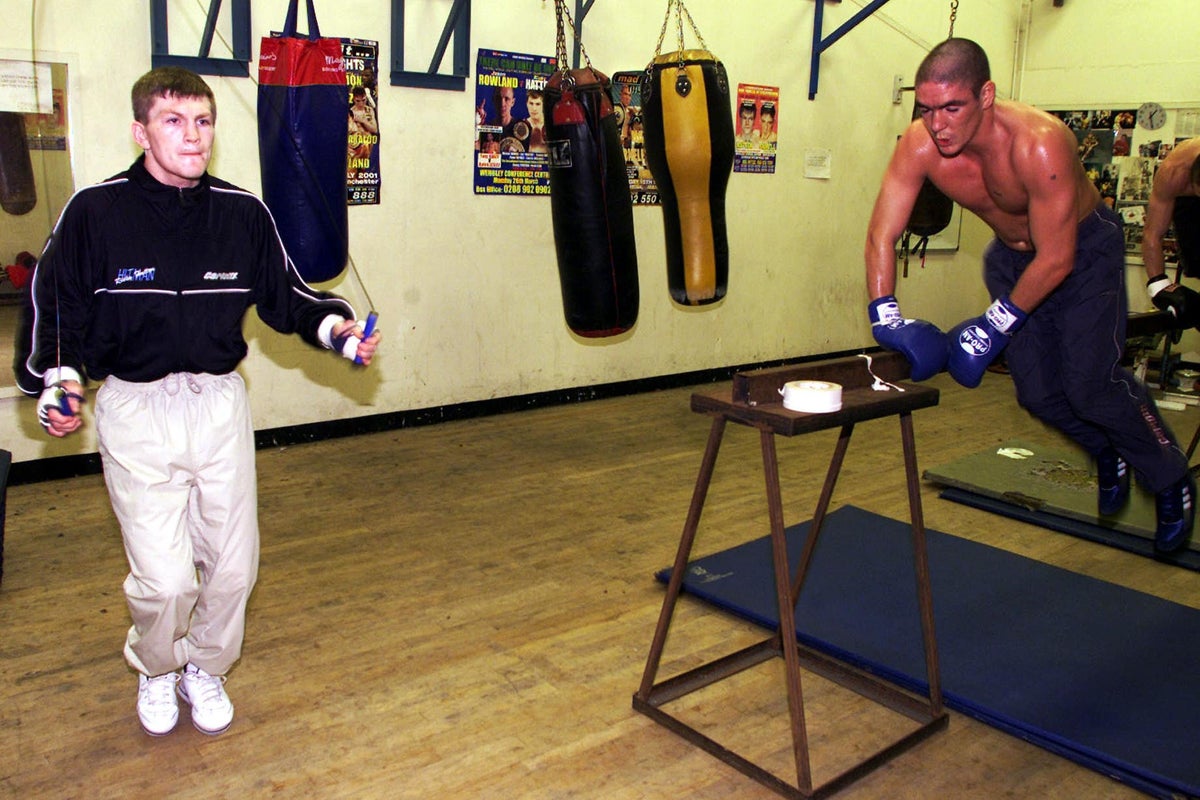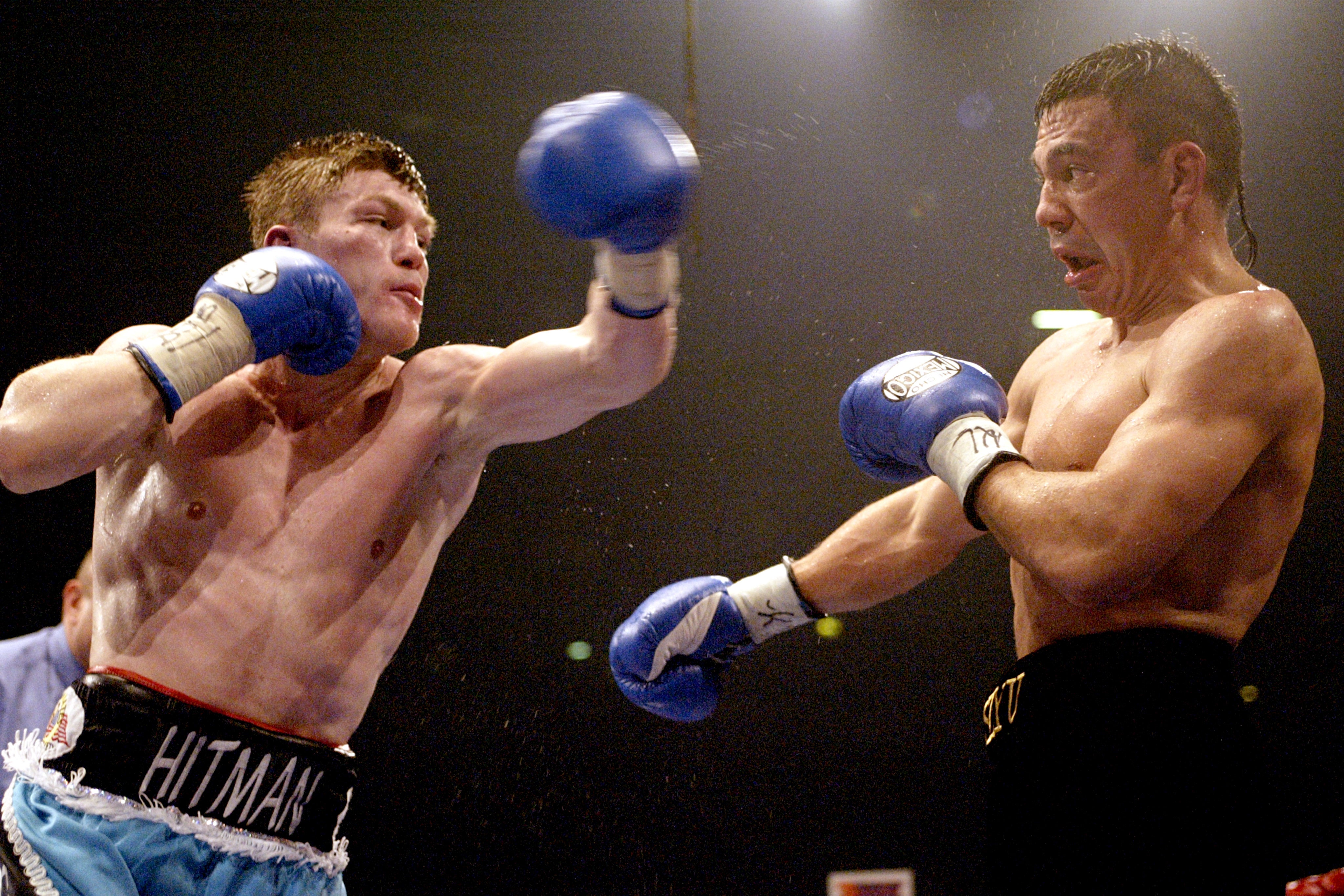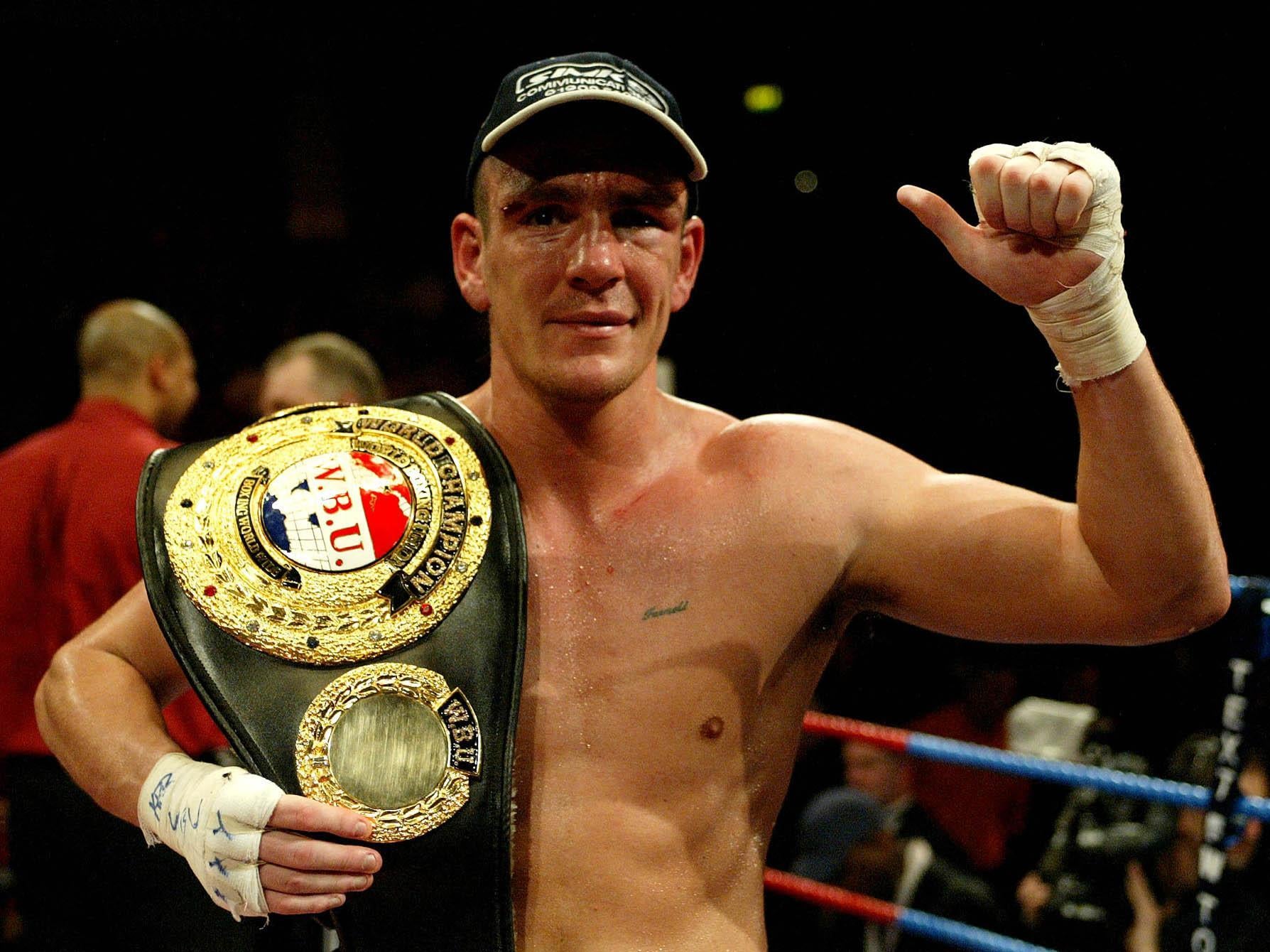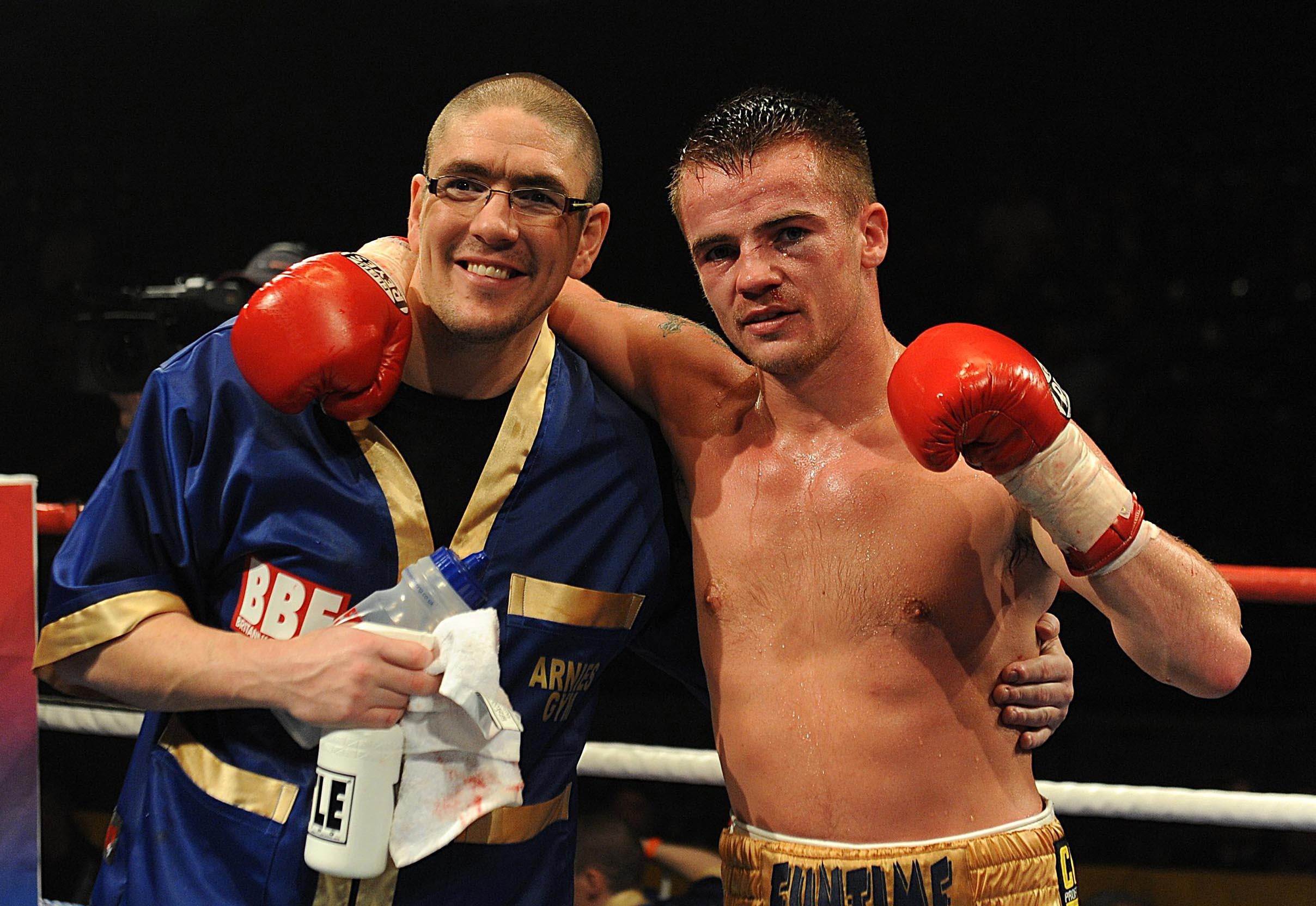
They were born three months and less than 10 miles apart, and together they were destined to experience boxing’s euphoric highs and crushing lows.
Ricky Hatton and Anthony Farnell were the first headline acts of Manchester’s dramatic ascendency in the sport through the first decade of the new century, attracting ever-growing hordes of raucous fans as they rose irresistibly through the ranks.
As unbeaten 20-year-olds, they travelled to Atlantic City to feature on the undercard of Naseem Hamed’s world featherweight title fight against Wayne McCullough in 1998, and in time both would feel the adulation of having belts of their own wrapped round their waists in their beloved home city.

Sadly, the comparisons stretch long beyond those unforgettable Championship nights, with both men candidly admitting to having endured crippling mental health issues once the ring lights finally flickered out.
An emotional Farnell paid tribute to Hatton, who was found dead at the age of 46 on Sunday morning, and believes it would be a fitting legacy for his friend if more channels could be opened to help boxers who may be struggling to face up to the end of their careers.
“When football players retire, they have someone to go and talk to, they have everything set up for them,” Farnell told the PA news agency. “As soon as you retire from boxing, that’s it. You’re not a boxer, your status is gone.
“It’s hard, especially when you’ve had thousands of people following you, then you’re retired and your phone’s not ringing, and it feels like you’ve been left on your own. I think boxing is like that. I know a lot of boxers who have suffered.”
Farnell did not quite manage to scale the same heights as Hatton but his relentless attacking style cultivated an army of loyal followers as he fought his way up to win the WBU middleweight title, before being forced to retire at the age of 26 due to complications in his mandatory MRI scan.

“When you’re a boxer, you don’t want to come out and say you’re suffering, you’re supposed to be big and strong,” added Farnell. “In Ricky’s case, people might have thought, ‘oh, you’ve got loads of money, thousands of people like you, what are you down for?’
“But when you’ve got to such heights, then you’re not getting patted on the back and stuff, it becomes harder. It might sound selfish but it’s just a natural thing, you just feel a bit low.
“I was lucky in that I could speak to my family. I had to see counsellors and a psychiatrist, and I was on anti-depressants for 18 years. It was a hard time. But then my son was born and I thought I can’t do this any more, and I managed to give myself a kick up the arse.
“But I was nothing like Ricky. People might have known me in Manchester, but people knew Ricky all around the world. We went to Las Vegas together once when we were 20 years old, and people were coming up and recognising him even then. I can’t imagine what that was like.”
Farnell credits the opening of his gym, Arnie’s Gym, in Failsworth shortly after he retired in 2005 with helping to steer his post-fighting life around. He also gave up drinking, and his injury ensured he could not succumb to the lure of the attempted comeback. Hatton had started training for a boxing return in Dubai in December.

Almost a quarter of a century on from an era in which Hatton and Farnell, alongside the likes of Robin Reid and Michael Gomez, helped temporarily shift the epicentre of the domestic sport to the north-west, Farnell hopes a fitting and permanent tribute will be established in the city.
“It’s a horrible time, but hopefully something can come out of it that can help boxers in some way,” added Farnell. “Somewhere you can go and talk to a retired boxer who’s suffered and come through it, like myself, and who can talk about it in a nice environment.
“[Also] a statue would be amazing, he would deserve it. There won’t be a boxer in Manchester like him ever again, or another boxer in the world who will get fans following him the way he did.”
Ricky Hatton’s son Campbell pays tribute to his father in social media post
Ricky Hatton’s son pays heartbreaking tribute to legendary boxing father
What Freddie Flintoff and Ricky Hatton tell us about men, mental health and sport
Lamine Yamal out of Barcelona’s clash with Newcastle but Frenkie de Jong returns
World Athletics Champs live: Kerr goes for 1500m gold after Ingebrigtsen shock
Palestine’s lone athlete at the World Championships has a message for those back home







